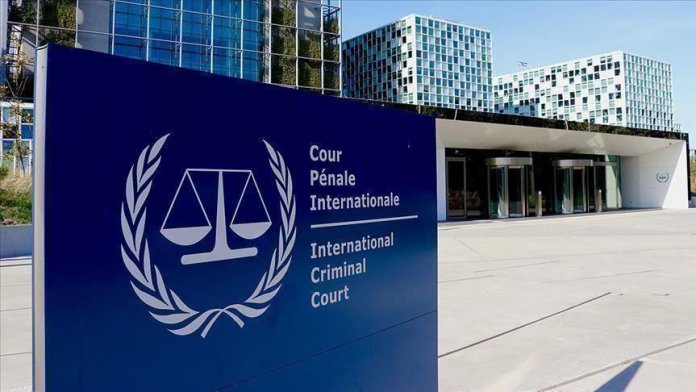Application Deadline: December 31, 2020
Organisational Unit: Legal Office, Registry
Duty Station: The Hague – NL
Contract Duration: 3 to 6 months
Required Documents for This Application
Please note that you will need to have the following information ready in order to complete your application:
A completed “Duties and Responsibilities Form” (refer to step 1 on your eRecruitment Profile page).
Motivation letter (maximum of 400 words).
Two reference letters (one academic).
Scanned copies of university degrees and/or diplomas.
Scanned copies of official academic transcripts that state your courses, results and completion date.
One short essay on a subject relevant to the work of the Court (maximum of 750 words, single spaced, type written).
Contract Duration
Interns are required to work full time for a period between three and six months (to be agreed to prior to commencement). Internship placements cannot be extended beyond six months.
Organisational Context
The RLO supports the Registrar in the legal aspects of the functions he performs under the Rome Statute, Rules of Procedure and Evidence, Regulations of the Court, Regulations of the Registry, Financial Regulations and Rules, Staff Regulations and Rules and other legal instruments governing the ICC.
The RLO’s advisory role covers both the ICC’s judicial functioning where the Registry is involved – such as in matters related to witnesses, detention of the accused, victim participation, and legal aid – and legal matters affecting the ICC as an international organisation – such as privileges and immunities, relations with States and other international organisations, and all aspects of its administration. In performing this dual role, the RLO is responsible for ensuring the quality, uniformity and consistency of legal positions across the various Registry divisions, units and sections; coordinating an internal legal network comprised of all the lawyers across the Registry; and providing legal advice to its clients. The RLO also advises the Registrar in staff litigation, including before the International Labour Organization’s Administrative Tribunal.
The RLO provides a broad range of legal services including drafting, negotiating, advising and litigating. It combines a commitment to legal excellence with a result-oriented and policy-friendly approach in delivering legal services. Because of the diversity of matters on which it advises, it operates as a dynamic and multifaceted international law practice in anticipation of and in response to client requirements.
The RLO is headed by the Legal Counsel.
Duties and Responsibilities
Within this framework, and under the direct supervision of the Legal Counsel, Deputy Legal Counsel or other designated staff members of the RLO, the intern will perform the following duties:
Conduct extensive legal research and analysis;
Contribute to the preparation and drafting of (complex) legal documents including legal submissions, correspondence, memoranda, opinions and briefs;
Contributes to providing advice to client sections and assit in providing advice to the Registrar and other senior officials of the Court;
Assist in negotiating agreements with a variety of parties within the Court;
Prepare summaries and updates of legal and factual issues;
Monitor judicial proceedings, provide advice on decisions and prepare summaries and digests for various purposes of the Registry;
Provide support in developing the operational framework for delivery of legal services including establishing and managing work flows, work processes, SOPs, systems and databases and central repositories of legal opinions and research, agreements, contracts and MoUs;
perform other or additional duties as assigned.
Essential Qualifications
Education:
All candidates must have a university law degree in law. Candidate must have sound knowledge of public international law, international criminal law, contract law, or (international) administrative law, as relevant to the work of the RLO; an advanced university degree is a strong asset. Candidates are expected to have a very good record of academic performance.
Experience:
Internship placements focus on candidates in the early stages of their professional careers; therefore, practical experience is not an essential prerequisite for selection. However, practical experience that is relevant to the work of the RLO may be considered an asset.
Knowledge, Skills and Abilities:
Candidates must:
Demonstrate excellent analytical and drafting skills;
Be able to adapt to multicultural and multilingual working environments;
Possess strong teamwork skills (listen, consult and communicate proactively);
Have acquired a good standard of computer skills (including Microsoft Office applications).
Knowledge of Languages:
Proficiency in one of the working languages of the Court, French or English, is required. Working knowledge of the other is desirable. Knowledge of another official language of the Court (Arabic, Chinese, Russian and Spanish) is an asset.
Other criteria:
In line with the ICC’s efforts to improve geographical representation among staff, nationals of the countries listed below are strongly encouraged to apply.
Non-represented or under-represented countries at the ICC as of 30 November 2019: Afghanistan, Andorra, Antigua and Barbuda, Austria, Bangladesh, Barbados, Belize, Bolivia, Brazil, Bulgaria, Burkina Faso, Cambodia, Cabo Verde, Central African Republic, Chad, Chile, Comoros, Congo, Cook Islands, Costa Rica, Cyprus, Czech Republic, Denmark, Djibouti, Dominica, Dominican Republic, El Salvador, Estonia, Fiji, Gabon, Germany, Grenada, Guyana, Guatemala, Honduras, Hungary, Iceland, Japan, Jordan, Latvia, Liberia, Liechtenstein, Lithuania, Luxembourg, Madagascar, Malawi, Maldives, Malta, Marshall Islands, Mauritius, Mexico, Montenegro, Namibia, Nauru, North Macedonia, Norway, Panama, Paraguay, Republic of Korea, Saint Kitts and Nevis, Saint Lucia, Saint Vincent and the Grenadines, Samoa, San Marino, Seychelles, Slovakia, Suriname, Sweden, Switzerland, Tajikistan, Timor-Leste, Tunisia, Uruguay, Vanuatu, Venezuela, Zambia.
Remuneration
Please note that the ICC is not able to provide all participants in the Internship and Visiting Professional Programme with remuneration, nor is it possible to provide reimbursement for expenses incurred during the internship or visiting professional placement.
Applicants should therefore be able to support themselves for the duration of their internship or placement.
Limited funding may, however, be available through the ICC’s Trust Fund for the Development of Interns and Visiting Professionals, which receives donations from States Parties and other donors to fund nationals of States Parties from developing regions. These donations are equally divided between the four Organs of the Court.
If funding is available, the Human Resources Section shall assess a candidate’s eligibility in accordance with the terms of reference of the Trust Fund as agreed by the donors.
In order to be eligible, the applicant must, among other criteria, be a national from a country that is a State Party to the Rome Statue and appears on the United Nations Statistics Division’s list of developing regions.
Candidates eligible for funding shall receive detailed information and further instructions after the selection process is finalized. Stipends will always be agreed at the time of offering the internship. No funding will be provided at a later stage.
For Application Details: https://career5.successfactors.eu/career?career_ns=job_listing&company=1657261P&navBarLevel=JOB_SEARCH&rcm_site_locale=en_GB&career_job_req_id=19298






